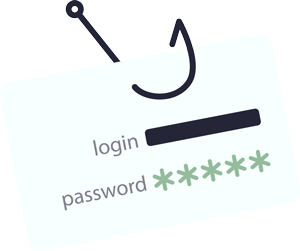
We all know how easy it is to cut corners in business; we’ve all done it somewhere. But we also know we shouldn’t. You’ll eventually have to face the consequences, whether they’re small or large. The same applies to IT. When you cut corners, the consequences to your business can be major. Here are three places where you never want to cut costs.
EQUIPMENT
You want to set up a wireless network at the office, but you don’t want to spend more than $50. So, you spend that $50 and call it good. While this new router may deliver a wireless signal that reaches every employee, you could be making a huge mistake that may cost you dearly.
Routers are a good example of technology you want to put extra thought and money into. You want equipment that not only makes sense for your business’s network needs but will also perform reliably and securely. Cheap routers aren’t known for their security features. You want something that will complement the firewalls or security software you have in place (and you should have them).
This same idea applies to all other equipment, as well as software. When you cut corners, there’s a good chance you’ll be opening your wallet again to fix the problem in the near future. On top of that, it puts your data at risk if you’re buying cheap, potentially faulty equipment. Do research, ask questions and work with an experienced IT company to make sure your equipment is up to snuff.
GROWTH OF YOUR BUSINESS
Whether you’re just getting started or you’ve been in the business for a while now, you always want to invest in hardware and software that will scale with your business. It’s safe to say that most businesses want to grow, which means adding more customers and more employees. When that’s the plan, scalability becomes a big deal.
Part of it comes back to the first point: cheap equipment isn’t typically designed with scalability in mind. It’s a quick-fix investment. It’s not made for the long haul. Where do you plan on being in five years? What are your growth goals? You have to ask these kinds of questions to determine what kind of investment you need to make, whether it’s in billing software, customer service software, workstations or your network infrastructure.
If you don’t think about scalability, as soon as you start really growing, you’ll be hit by growing pains. You’ll have to reinvest in technology, and you’ll be spending far more than you needed to, once for the first investment (on non- scalable tech) and once for the second investment (to catch up with your growth). But because your business has grown since that initial investment, you’ll be left with a hefty bill – for much more than you paid the first time. Don’t make this mistake!
DATA SECURITY
Just because your data is locked away in the back room doesn’t mean it’s safe. For one, small businesses are the biggest targets for cybercriminals because most small businesses skimp on data security, making it easy for cybercriminals to steal data and cause a lot of problems.
To make matters worse, if you get hit with a cyber-attack or data breach, it can be incredibly difficult to recover, and many small businesses don’t ever recover. They struggle for a few months before finally closing their doors.
You need to invest in firewalls, malware protection, data encryption, data backups, password managers and, as mentioned above, good equipment that is designed with reliability and security in mind. And no, you don’t have to figure it out by yourself. It can be a lot, and as you dive into the topic of data security, you’ll have questions.
This is exactly why you want to pair up with an experienced IT company that specializes in security. It is very hard to run a business and try to be a data security expert at the same time. Thankfully, you don’t have to do that. You can get the most out of your equipment, you can be prepared for future growth and you can be ready for the threats to your data! You just have to make that first investment.











